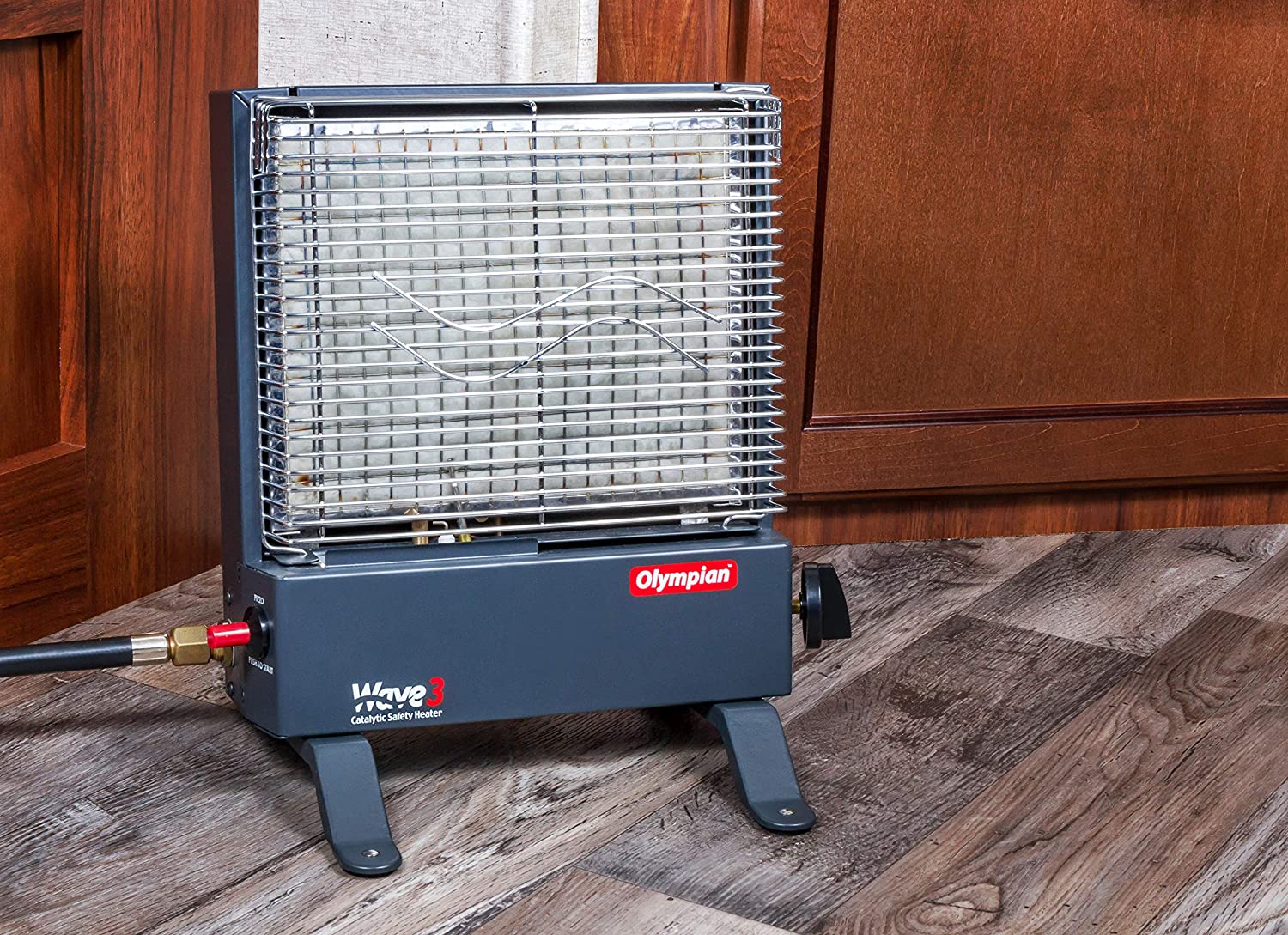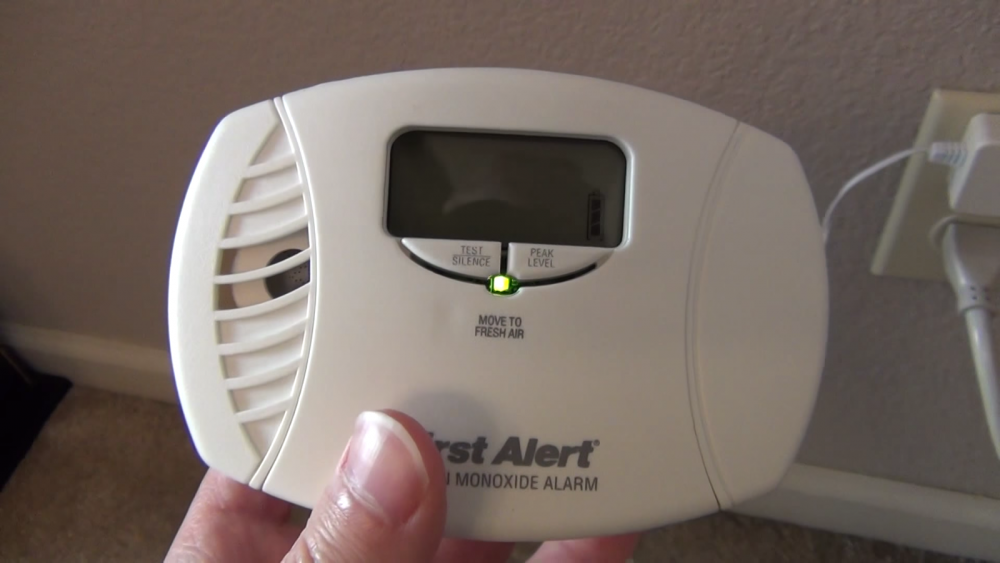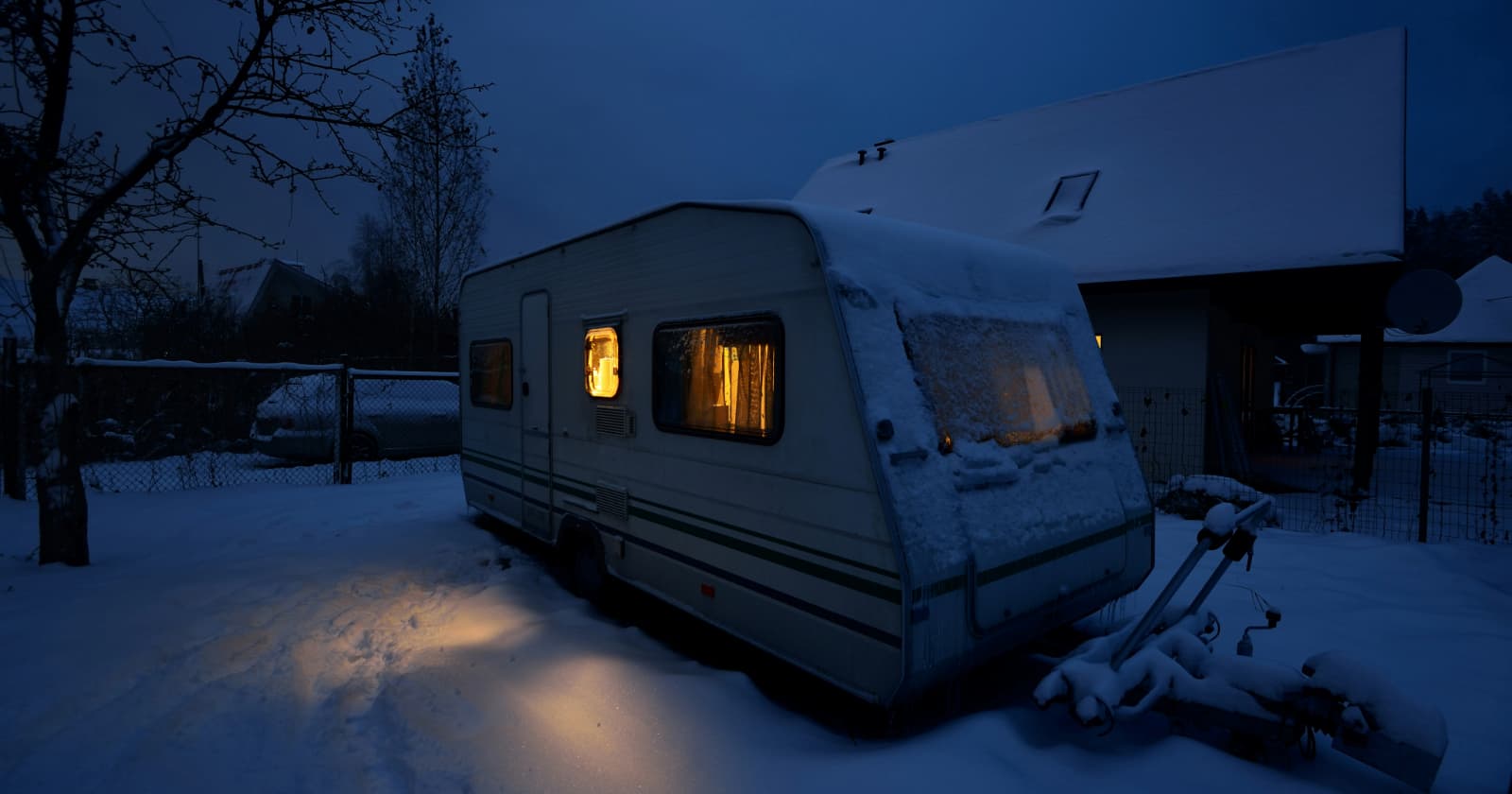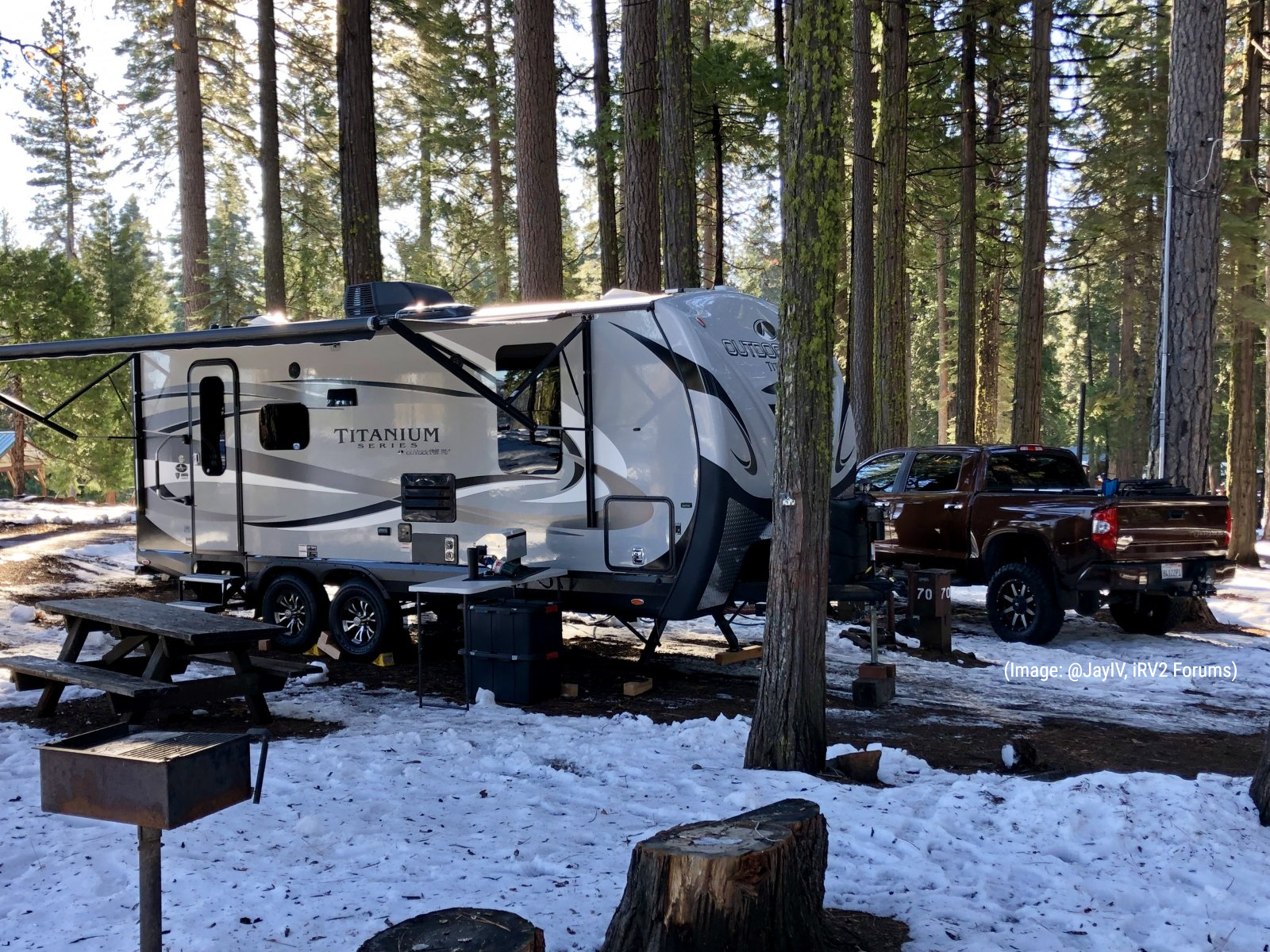
The Dangers Of Using Propane Heaters (And What Precautions You Should Take)
A travel trailer set on fire in Oregon recently after a dog knocked over a portable propane heater.
The RVer was lucky to escape unharmed in this case, but accidents like this are not uncommon. If you’re using a portable propane heater to stay warm over the winter, you’ll want to follow a few simple precautions to prevent fires and carbon monoxide poisoning.
Open a window.
Before using a gas-fueled heater, make sure you have enough ventilation by cracking open a window. I know it seems counteractive to open a window when you’re trying to heat up the place (after all, you’re not paying to heat the outside), but the last thing you want to do is fill your RV with poisonous gas.
High levels of carbon monoxide can be fatal. Early signs of poisoning are similar to flu symptoms: headache, dizziness, and nausea. If you’re feeling these symptoms and suspect the heater isn’t working properly, get some fresh air right away.
Install a carbon monoxide detector.

Opening a window usually allows enough air flow without letting out too much heat. But since the gas is both poisonous and odorless, you’ll also want to install a carbon monoxide detector. To be extra safe, get a detector with a digital display like this one from First Alert.
It displays the current CO levels and the alarm goes off when the concentration is too high. The detector runs off plug-in and battery power, so it can monitor continuously whether you’re at the RV park or boondocking off the grid.
Remember to replace the batteries and test the detector annually to make sure it’s still in proper working condition.
Check for gas leaks regularly.
Every time you connect your heater to its fuel supply, check the connection points and hoses for damage and/or any potential gas leaks.
If you smell gas, try applying soapy water to connections between hoses, the unit, and cylinder, and inspect for bubbling. Carefully listen for the hiss of gas escaping, and touch the cylinder to feel for extreme cold. If you suspect the connection and/or cylinder is leaking, do not light the heater—it will need to be replaced.
Use a propane heater with a tip-over safety switch.
Make sure your propane heater is specifically designed to be used indoors. These models often have safety features like automatic shut-off in case the unit is tipped over and low-oxygen sensors.
This portable heater by Mr. Heater has an auto shut-off (if tipped over) and heats spaces up to 225 square feet. The company also makes a Little Buddy for smaller indoor spaces up to 95 square feet.
Another option is Camco’s gas catalytic heaters which have a safety shut-off valve. They can be mounted on the wall or used as portable space heaters.
Place your heater out of the way.
When running the heater, keep it away from pets and kids in a spot where there isn’t a lot of foot traffic. Place it away from flammable materials, and do not store extra LP or propane cylinders near the heater while it’s in use (fuel cylinders should always be stored outside).
Also, make sure it’s not too close to your carbon monoxide detector for a more accurate reading.
Only run your heater as needed.
Never leave your gas heater on while sleeping at night or leave it unattended. You’ll decrease the risk of things going wrong, preserve fuel, and save money in the long run.
When you turn the heater off, remember to also shut off the gas supply on the cylinder. Some manufacturers recommend that you close the gas supply and allow the heater to use up the fuel in the line until the heater shuts off.
Use other methods to stay warm.
Portable propane heaters aren’t your only option to stay warm in an RV. If you’d rather not use a gas heater, consider other options like skirting your RV for more insulation and investing in a 12-volt electric blanket.



